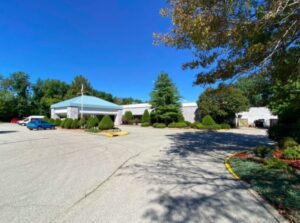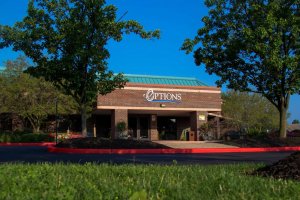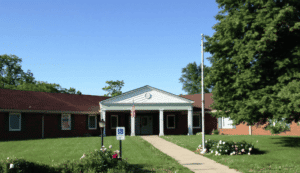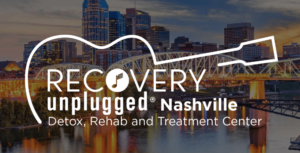Halcion Addiction And Abuse
Addiction To Halcion
Halcion, also known as Triazolam, is a potent Benzodiazepine that is prescribed to treat disorders including insomnia, anxiety, aggression, suicidal behavior, schizophrenia, psychosis, and Tourette’s. The strength of the medication means there is a significant risk of Halcion addiction and abuse.
Halcion is a controlled substance, and it is often abused because it may cause a “high” similar to alcohol intoxication. Physical addiction and dependence can develop as a result of Halcion use or abuse, and some people become addicted to it in as little as two weeks. Even people taking Halcion with a prescription have become dependent on the drug.
The presence of withdrawal symptoms when quitting Halcion is a major indicator of an addiction. People addicted to Halcion may also feel helpless and unable to function without the drug.
Because Halcion withdrawal can be deadly, people who take the drug should seek medically supervised detox if they plan to stop or reduce Halcion use.
Some signs of an addiction to Halcion may include:
- Repeated, unsuccessful attempts to quit.
- A lot of time spent recovering from Halcion’s effects.
- Cravings for the drug.
- Ignoring important obligations.
- Needing more Halcion to feel its effects.
When taking Halcion for longer than the prescribed period, or at higher concentrations, the user’s body can rapidly develop a tolerance to the substance. Users have even become addicted while following a doctor’s recommended dose.
The zombie-like feeling that goes hand in hand with popping a pill eventually transitions into your personality, and it no longer becomes a euphoric rush but a necessity to survive, to even exist, to even be yourself. I felt dead on the inside.
Online Addiction Counseling
Get professional help from an online addiction and mental health counselor from BetterHelp.
- Access to Therapy 24/7
- Easy Online Scheduling
- 20,000+ Licensed Therapists
Paid Advertising. We may receive advertising fees if you follow links to the BetterHelp site.
The Difference Between Halcion Abuse, Dependency, And Addiction
Any time Halcion is used in any way other than its prescribed medical purpose, it is considered abuse. Halcion dependence is a physical state caused by long-term use that results in withdrawal symptoms when the user reduces or stops Halcion use. Halcion addiction is a primary, chronic, neurobiological disease with genetic, psychosocial, and environmental factors. Halcion addiction and abuse can be characterized by:
- Inability to control Halcion use.
- Compulsive Halcion use.
- Continuing to use Halcion despite negative consequences.
- Craving Halcion.
Understanding Halcion (Triazolam)
Halcion is the brand name for Triazolam. The tablets are taken orally and are most commonly prescribed to treat insomnia, although it is also common to prescribe Halcion for a number of mental and mood disorders. Halcion takes effect faster than most other Benzos, slowing brain activity and making it easier to sleep. Some doctors may prescribe Halcion for anxiety before minor medical procedures.
Halcion is intended for short-term use, typically no more than 7 to 10 days.
Halcion targets neuroreceptors that regulate brain function. This slows hyperactive brain activity and promotes deeper sleep. The substance is sometimes referred to by the slang term “Up Johns.” Halcion has a much shorter half-life than other Benzodiazepines. Halcion’s half-life, or how long the drug remains active in the body, is only 1 to 2 hours. Other Benzos can last up to 70 hours.
| How Long Do Benzos Stay In The Body? | |||
|---|---|---|---|
| Brands | Halcion | Xanax | Valium |
| Length Of Action | Short-acting | Intermediate | Long-acting |
| Time | 2-4 hours | 6-12 hours | 20-100 hours |
Doctors rarely prescribe Halcion for more than 10 days because of the drug’s potency and addictive potential. Halcion can stop working like it’s supposed to after a week. Halcion may not be as effective the longer it’s taken. After the first week, many people find that the drug doesn’t help them sleep like it used to. This can lead to users increasing their dose in an attempt to regain the drug’s effects.

Break free from addiction.
You have options. Talk about them with a treatment provider today.
Halcion Addiction Treatment
If you or a loved one is struggling with Halcion addiction, recovery is possible. Contact a treatment provider to get help finding treatment today.
Published:
Author
Jeffrey Juergens

-
Jeffrey Juergens earned his Bachelor’s and Juris Doctor from the University of Florida. Jeffrey’s desire to help others led him to focus on economic and social development and policy making. After graduation, he decided to pursue his passion of writing and editing. Jeffrey’s mission is to educate and inform the public on addiction issues and help those in need of treatment find the best option for them.
- More from Jeffrey Juergens
Reviewed by Certified Addiction Professional:
Theresa Parisi

Theresa Parisi is a Certified Addiction Professional (CAP), Certified Behavioral Health Case Manager (CBHCM), and International Certified Alcohol and Drug Counselor (ICADC) with over 12 years of experience in the addiction treatment field.
- More from Theresa Parisi
Sources


Recovery Starts Today
Call Now For Addiction Support

Newport Institute for Young Adults
Monticello , MN


Recovery Centers of America at St. Charles
St. Charles , IL

Banyan Treatment Centers – Chicago
Chicago , IL

Timberline Knolls Treatment Center for Women
Lemont , IL

Banyan Treatment Centers – Illinois
Gilman , IL


Recovery Centers of America at Indianapolis
Indianapolis , IN

Boca Recovery Center – Indiana
Bloomington , IN

Options Behavioral Health Hospital
Indianapolis , IN

Ridgeview Behavioral Hospital
Middle Point , OH





Recovery Unplugged – Nashville
Nashville , TN